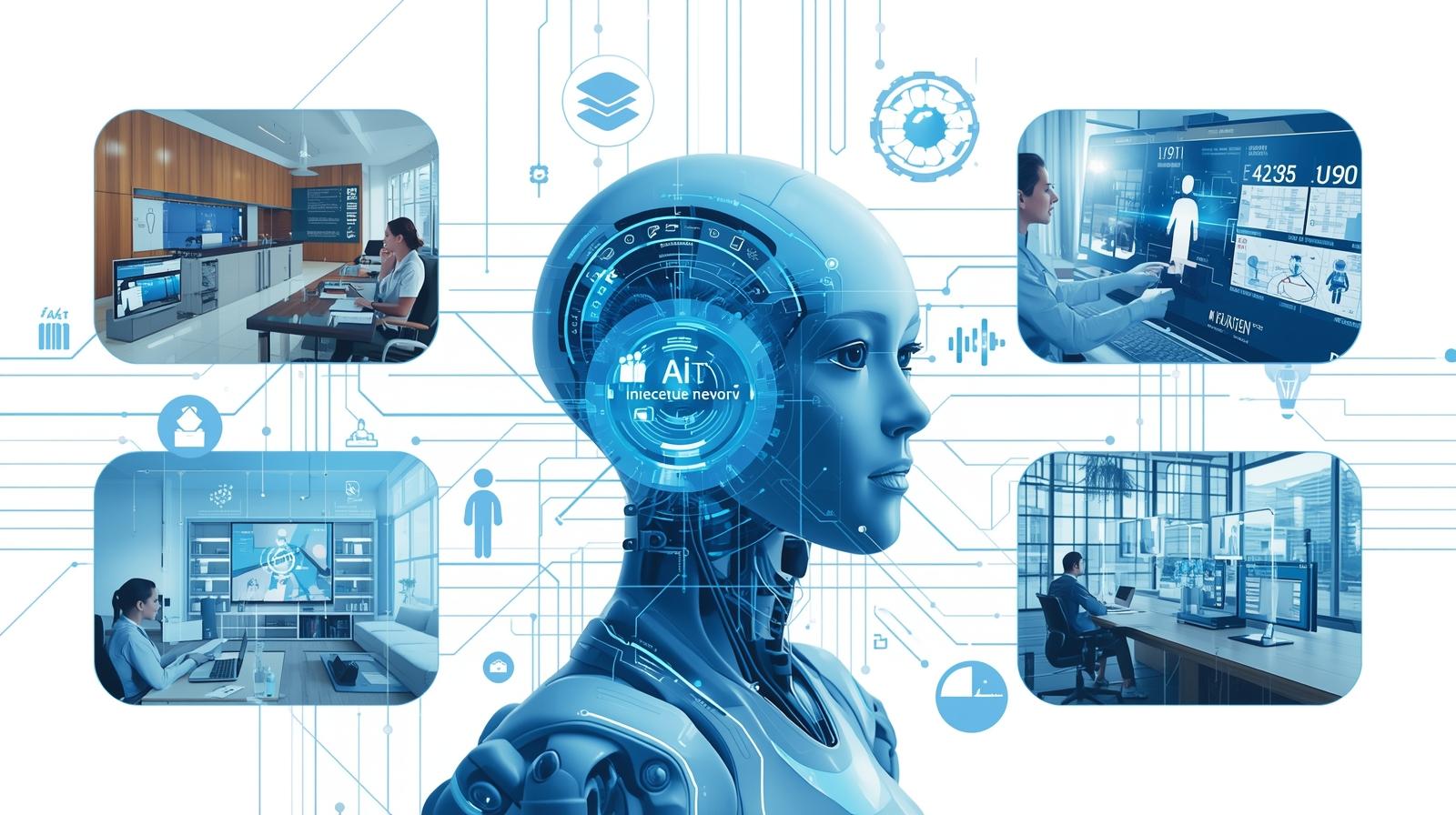Explore the ways artificial intelligence is transforming work, learning, and daily living.
AI in Smart Homes
Making homes more efficient and secure.
Artificial intelligence is reshaping our living spaces. Smart thermostats learn your schedule to optimize energy use, while AI-powered lighting systems adjust automatically based on natural light and activity patterns. Security cameras equipped with AI can detect unusual behavior and alert homeowners in real time. Voice assistants manage daily tasks, reminders, and even control connected appliances. Together, these technologies not only increase convenience but also reduce energy bills and improve household safety. Over time, the integration of AI in smart homes contributes to a more sustainable and comfortable lifestyle.
AI in Healthcare
Enhancing diagnosis and treatment
Artificial intelligence is revolutionizing healthcare by supporting faster and more accurate diagnoses. AI algorithms analyze medical imaging, lab results, and patient histories to detect early signs of diseases like cancer, heart conditions, or neurological disorders. Personalized medicine is also advancing; AI can recommend tailored treatment plans based on genetic data, lifestyle, and medical history. Virtual health assistants answer patient queries, monitor chronic conditions, and even remind patients to take medications. By improving efficiency and accuracy, AI reduces human error and ensures better outcomes for patients worldwide.
AI in Education
Personalized learning for students
Education is becoming increasingly adaptive thanks to AI. Learning platforms now analyze student performance and adjust lessons to individual needs. Interactive AI tutors provide instant feedback, identify areas of weakness, and recommend additional resources. Virtual classrooms powered by AI allow for personalized pacing, ensuring students stay engaged and learn efficiently. Teachers can focus on critical thinking and creative instruction, while AI handles administrative tasks and grading, enhancing the overall learning experience.
AI in Transportation
Safer, smarter mobility
Self-driving cars, AI-controlled traffic lights, and predictive maintenance systems are changing transportation. Autonomous vehicles reduce human error, potentially lowering accident rates. Smart traffic systems optimize traffic flow, reduce congestion, and lower emissions. AI also predicts vehicle maintenance needs, preventing breakdowns and improving efficiency. Public transportation systems are being enhanced with AI-driven route planning, ensuring punctuality and better passenger experience. These innovations make travel safer, faster, and more environmentally friendly.
AI in Business Operations
Efficiency and decision-making
Companies increasingly rely on AI for customer service, data analysis, and decision-making. Chatbots handle routine queries, freeing human agents for complex tasks. Predictive analytics anticipate market trends, helping companies adjust strategies proactively. AI streamlines supply chains by optimizing inventory, delivery routes, and production schedules. Marketing campaigns benefit from AI’s ability to segment audiences, personalize messages, and measure effectiveness in real-time. By integrating AI, businesses save costs, enhance productivity, and maintain a competitive edge in a rapidly changing market.
Ethical and Social Considerations
Balancing innovation with responsibility
While AI offers remarkable benefits, ethical considerations are critical. Privacy, data security, and algorithmic bias are ongoing concerns. Transparency in AI decision-making ensures accountability, and governments are developing frameworks to regulate AI applications. Societal impacts, such as job displacement, require reskilling programs and public awareness. Emphasizing responsible AI development ensures that technology benefits humanity while minimizing risks.
The Future of AI in Daily Life
Emerging innovations to watch
AI continues to evolve rapidly. From virtual assistants and predictive healthcare to augmented reality and personalized entertainment, AI is becoming deeply embedded in daily life. Future developments may include emotion-sensing AI, advanced robotics for household chores, and AI-driven sustainability initiatives. Staying informed about AI’s capabilities allows individuals to leverage technology for convenience, productivity, and better quality of life.
Created with ChatGPT
